Related Research Articles

Jean Maurice Eugène Clément Cocteau was a French poet, playwright, novelist, designer, film director, visual artist and critic. He was one of the foremost artists of the surrealist, avant-garde, and Dadaist movements and an influential figure in early 20th century art. The National Observer suggested that, "of the artistic generation whose daring gave birth to Twentieth Century Art, Cocteau came closest to being a Renaissance man.".

Orpheus is a 1950 French film directed by Jean Cocteau and starring Jean Marais. It is the central part of Cocteau's Orphic Trilogy, which consists of The Blood of a Poet (1930), Orpheus (1950), and Testament of Orpheus (1960).

Jean-Alfred Villain-Marais, known professionally as Jean Marais, was a French actor, film director, theatre director, painter, sculptor, visual artist, writer and photographer. He performed in over 100 films and was the lover, muse and friend of acclaimed director Jean Cocteau. In 1996, he was awarded the French Legion of Honor for his contributions to French cinema.

Orphism or Orphic Cubism, a term coined by the French poet Guillaume Apollinaire in 1912, was an offshoot of Cubism that focused on pure abstraction and bright colors, influenced by Fauvism, the theoretical writings of Paul Signac, Charles Henry and the dye chemist Michel Eugène Chevreul. This movement, perceived as key in the transition from Cubism to Abstract art, was pioneered by František Kupka, Robert Delaunay and Sonia Delaunay, who relaunched the use of color during the monochromatic phase of Cubism. The meaning of the term Orphism was elusive when it first appeared and remains to some extent vague.
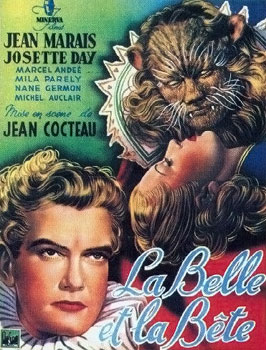
Beauty and the Beast is a 1946 French romantic fantasy film directed by French poet and filmmaker Jean Cocteau. Starring Josette Day as Belle and Jean Marais as the Beast, it is an adaptation of the 1757 story Beauty and the Beast, written by Jeanne-Marie Leprince de Beaumont and published as part of a fairy tale anthology.
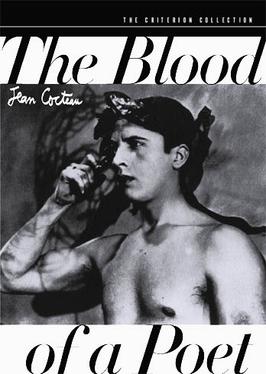
The Blood of a Poet (1932) is an avant-garde film directed by Jean Cocteau, financed by Charles de Noailles and starring Enrique Riveros, a Chilean actor who had a successful career in European films. Photographer Lee Miller made her only film appearance in this movie, which features an appearance by the famed aerialist Barbette. It is the first part of The Orphic Trilogy, which is continued in Orphée (1950) and concludes with Testament of Orpheus (1960).

Testament of Orpheus is a 1960 black-and-white film with a few seconds of color film spliced into it. Directed by and starring Jean Cocteau, who plays himself as an 18th-century poet, the film includes cameo appearances by Pablo Picasso, Jean Marais, Charles Aznavour, Jean-Pierre Leaud, and Yul Brynner. It is considered the final part of The Orphic Trilogy, following The Blood of a Poet (1930) and Orphée (1950).
La Villa Santo Sospir (1952) is a 35-minute amateur or home film directed by Jean Cocteau in which Cocteau takes the viewer on a tour of Francine Weisweiller's villa on the French coast, a major location later used in his film Testament of Orpheus (1960).

María Victoria Casares y Pérez was a Spanish-born French actress and one of the most distinguished stars of the French stage and cinema. She was credited in France as Maria Casarès.

Les Enfants terribles is a 1950 French film directed by Jean-Pierre Melville, with a screenplay adapted by Jean Cocteau from his 1929 novel of the same name about the tangled relationship of a close brother and sister.
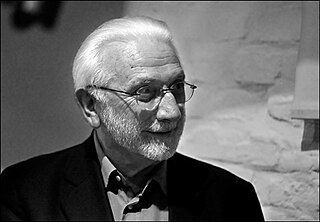
Lucien Clergue was a French photographer. He was Chairman of the Academy of Fine Arts, Paris for 2013.
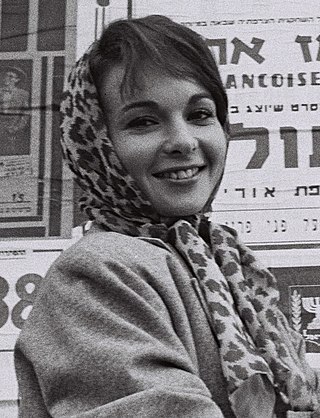
Françoise Arnoul was a French actress who achieved popularity during the 1950s.

The ancient legend of Orpheus and Eurydice concerns the fateful love of Orpheus of Thrace for the beautiful Eurydice. Orpheus was the son of Oeagrus and the muse Calliope. It may be a late addition to the Orpheus myths, as the latter cult-title suggests those attached to Persephone. The subject is among the most frequently retold of all Greek myths, being featured in numerous works of literature, operas, ballets, paintings, plays, musicals, and more recently, films and video games.

In Greek mythology, Orpheus was a Thracian bard, legendary musician and prophet. He was also a renowned poet and, according to the legend, travelled with Jason and the Argonauts in search of the Golden Fleece, and even descended into the underworld of Hades, to recover his lost wife Eurydice.

Parking is a French fantasy and musical film from 1985. It was directed and written by Jacques Demy, starring Francis Huster, Laurent Malet, and Jean Marais.

The Jean Cocteau Museum/Séverin Wunderman Collection is a museum in Menton, on the French Riviera, in the Alpes-Maritimes department. Dedicated to the French artist Jean Cocteau, it incorporates the collection of American businessman and Cocteau enthusiast Séverin Wunderman.
Orphée is the French for Orpheus, a legendary figure in Greek mythology, chief among poets and musicians.
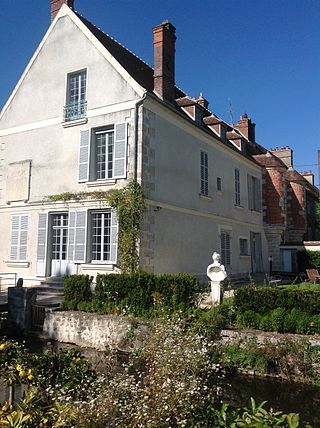
The Jean Cocteau House was the residence of the French poet, artist, playwright and film maker Jean Cocteau (1889–1963), which he purchased with the film actor Jean Marais in 1947, and where he created many of his later works before his death in 1963. It is located about fifty kilometers south of Paris in the village of Milly-la-Forêt in the Essonne Department of France. The 16th century house was originally part of the domain of a 13th-century chateau whose moat and a ruined tower are next to the house. The house also has gardens and a small wooded park. The house now displays furnished rooms and a museum of his work. The tomb of Cocteau, decorated with his work, is found in a small chapel, Saint Blaise des Simples, at the edge of town not from the house. The house facade and roof were listed in the supplemental inventory of historic monuments in 1969.
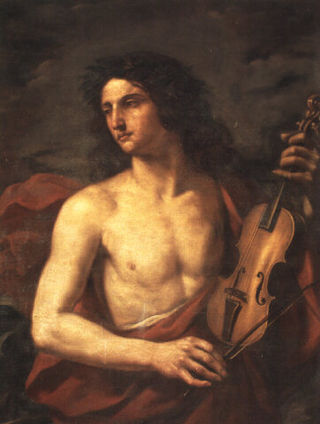
Orphée is a chamber opera in two acts and 18 scenes, for ensemble and soloists, composed in 1991 by Philip Glass, to a libretto by the composer, based on the scenario of the eponymous film (1950) by Jean Cocteau. Commissioned by the American Repertory Theater in Cambridge, Massachusetts, and the Brooklyn Academy of Music in New York, this is the first part of a trilogy in honour of the French poet. The world premiere of the work took place on 14 May 1993 under the direction of Martin Goldray and the European premiere in London on 27 May 2005 in the Royal Opera House's Linbury Studio Theatre.
Orpheus, original title Orphée, is a stage play written by Jean Cocteau, produced in Paris 1926 by Georges Pitoëff and Ludmilla Pitoëff, with decors by Jean Hugo and costumes by Coco Chanel.
References
- ↑ "The Orphic Trilogy". Harvard Film Archive. 2006-04-14. Retrieved 2024-04-08.
- ↑ "Jean Cocteau and the Orphic Trilogy – MondesFrancophones.com". mondesfrancophones.com. Retrieved 2024-04-08.
- ↑ "The Orphic Trilogy". The Criterion Collection. Retrieved 12 September 2018.